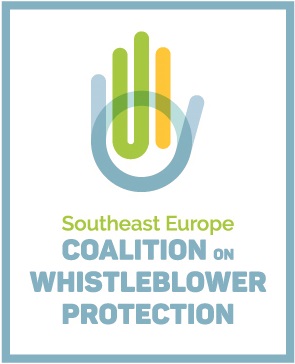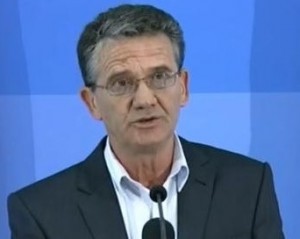Municipality Rankovce is a leader by the number of employees in Macedonia. For 10 years this community has increased its staff by five times. In 2005 the municipality had 6 employees, while in 2014 their number rose to 31 people. Municipality Dolneni has had the same recruitment process for the past 10 years as Rankovce. But unlike Rankovce, this Pelagonija municipality has three times more inhabitants than Rankovce. Third place, according to the growth of the municipal administration holds the municipality of Tetovo. From 2005 to 2014 it increased the number of its employees by 4.5 times. In Tetovo half of the budget goes for administration’s salaries.
According to the mayor of Rankovce, Momcilo Aleksovski, overstaffing impedes functioning.
“The biggest issue is the Fire Department. We have 9 firefighters who receive their salary from the municipal budget. First salaries have to be paid, and then the other functions of the municipality. The money we receive from the refunding by the state on the basis of value added tax (VAT) is not enough for the salaries. We receive around 820.000 denars from VAT and salaries amount to 920.000 denars”, says Aleksovski. He has been a mayor since 2013 and all employees had been employed before he became mayor of this Osogovo municipality. Figures are alarming in almost all municipalities. For every local election 1,000 to 1,500 civil servants were employed in municipalities. The research of the Center for Investigative Journalism SCOOP Macedonia shows that of the processed 42 municipalities with a population of about 1 million people, in 2005 1,385 civil servants worked, while in 2014 the number of employees exceeded over 3,100. Pre-election employments Largest employment in municipalities was recorded in 2008 and 2009, when local elections took place. According to our database of previously processed municipalities, only in these two years 666 civil servants were employed. This is 10 times more than in 2007 when municipal administrations employed only 65 people and 150 times more than in 2006 when only 4 civil servants were employed in all 42 processed municipalities. “In municipality Tetovo in 2009 they employed everyone just to win the election in 2009. Candidates were the then mayor of Tetovo Hazbi Lika from DUI and his successor Sadi Bexheti from DPA. But despite the employments, Lika lost the election”, says 40-year-old Murtezan, member of DUI from Tetovo. In December 2007 in municipality Tetovo 139 administrative workers worked, while in 2009 their number grew to 236 people. In 2009 in Stip there was a similar analogy of employment as in Tetovo. On the eve of local elections in 2009 and after the elections in the municipality of Stip the number of employees increased by a staggering 80 percent. In December 2007 the municipal administration of the city under the Isar had 84 people, while in the same month in 2009 their number grew to 143 employees. Zoran Kostovski, advisor at the Municipality of Stip from VMRO-People’s Party says that this situation is to satisfy the appetites of the party members who run for elections. “With the decentralization mayors got more power and authorizations and had to satisfy the party soldiers. Every mayor does it. Therefore the number of employees in the administration has enormously increased. Most employments in Stip date from the time when Zoran Aleksov was mayor”, says Kostovski. He adds that damages of this policy are enormous. The municipality is loaded with new employments and additional costs that long term kill its capacity to perform basic functions it has been established for. Employment policy during the local elections continued in 2013. In this election cycle most employees were registered in the municipality of Karpos, 112 people and Tetovo with 101 new civil servants. It also happened in the small municipalities. Thus, in Dojran for this election cycle the number of employees increased by 50 percent and Makedonski Brod, Debar and Radovis, a year before and a few months after the elections increased the number of employees in the municipal administrations for almost 40 percent.
In this round for the first time there was significant reduction of municipal administration. It is about the municipality of Stip, which reduced the number of employees by 35 people compared to 2011, or almost 20 percent.
According to the adviser in the municipality, Kostovski, the Mayor of Stip Ilco Zahariev is credited with this reduction.
“In my opinion, current mayor of Stip, Ilco Zahariev, is trying to resist the centralization making decisions and directives coming from VMRO, but I do not know whether he will resist these pressures. I think DPMNE is currently putting very great pressure on him to employ people”, said Kostovski.
Kocani is also an example of this and municipal administration has decreased by 10 percent.
Parties employ, citizens pay inefficient administration
For the services of the municipal administration each family from Makedonski Brod pays a fortune. Each month local administration spends 1,230 denars from the average family in this town.
Mayors are silent
Mayor of Tetovo, Teuta Arifi, did not give a statement regarding overstaffing in municipal administration. Mayor of Karpos, Stevce Jakimovski, did not respond to our requests for a statement. We tried to get in touch with the mayor of Makedonski Brod, Milosim Vojnevski, but he neither responded to our calls.
The municipality employs 70 people and it has a population of 7,141 inhabitants. For every 102 inhabitants of this municipality there is one employee of the municipal administration. According to the State Statistical Office, last average gross salary in 2015 was 31,455 denars. When this money is given to 102 inhabitants of Makedonski Brod it turns out that every citizen pays 308 denars per month for administration. When this figure is multiplied by 4 as the average Macedonian family, it turns out that per month, just to pay the municipal administration’s salaries, an average family from Makedonski Brod should pay 1.233 denars.
There is a similar situation in Rankovce, Karpos, Gradsko and Chashka.
Experts consider hiring before elections to give serious indication of corrupting the voters. Such a practice, they say, simultaneously takes place in both state and public administration.
For financial analyst and former Minister of Economy Zoran Vitanov, these figures are striking.
“It is a pity that in some municipalities the number of employees in municipal administration has increased 5 times, while at the same time economic activity in these municipalities in the last decade has decreased at least 5 times. Can we imagine how we pretend not to know math”, Vitanov said.
For academician Abdulmenaf Bexheti, professor at Southeast European University in Tetovo, this results from the inability of Albanian parties to employ people in state administration, so they overstaff municipalities.
“Employment in municipalities is pure militancy and nepotism, smallest is the control of these jobs just locally and here they gather partisan army”, says Bexheti.
While parties continue to employ an army of voters, their salaries, however, are provided from the tax of all citizens. Instead of new infrastructure projects, municipal money is spent on administration’s salaries.
Immorality of Macedonian citizens and politicians
According to Zoran Vitanov, these figures show immorality of Macedonian citizens and politicians. “One family will pay 1,200 denars for municipal administration, which is even more than their account for trash removal, more than the phone bills, more than the bills for cable TV and often even more than the electricity bills. It is a glaring fact”, Vitanov says. He adds that if we continue, we will have situations where for 50 residents we will have one employee of municipal administration. In the next election, we employ ours, and do not sack theirs and the number of administrative workers is constantly increasing.
(The story was is supported within the NED project “Raising Awareness about Corruption through Investigative Reporting”)








